“Assignment—Paris”
Echoes of the William Oatis case give a headline sort of urgency to Columbia’s picture of American newspaperdom in conflict with the Iron Curtain. But this is no grim documentary-style movie; it’s consistently entertaining, with many crackling lines, a dash of romance and some persuasive acting.
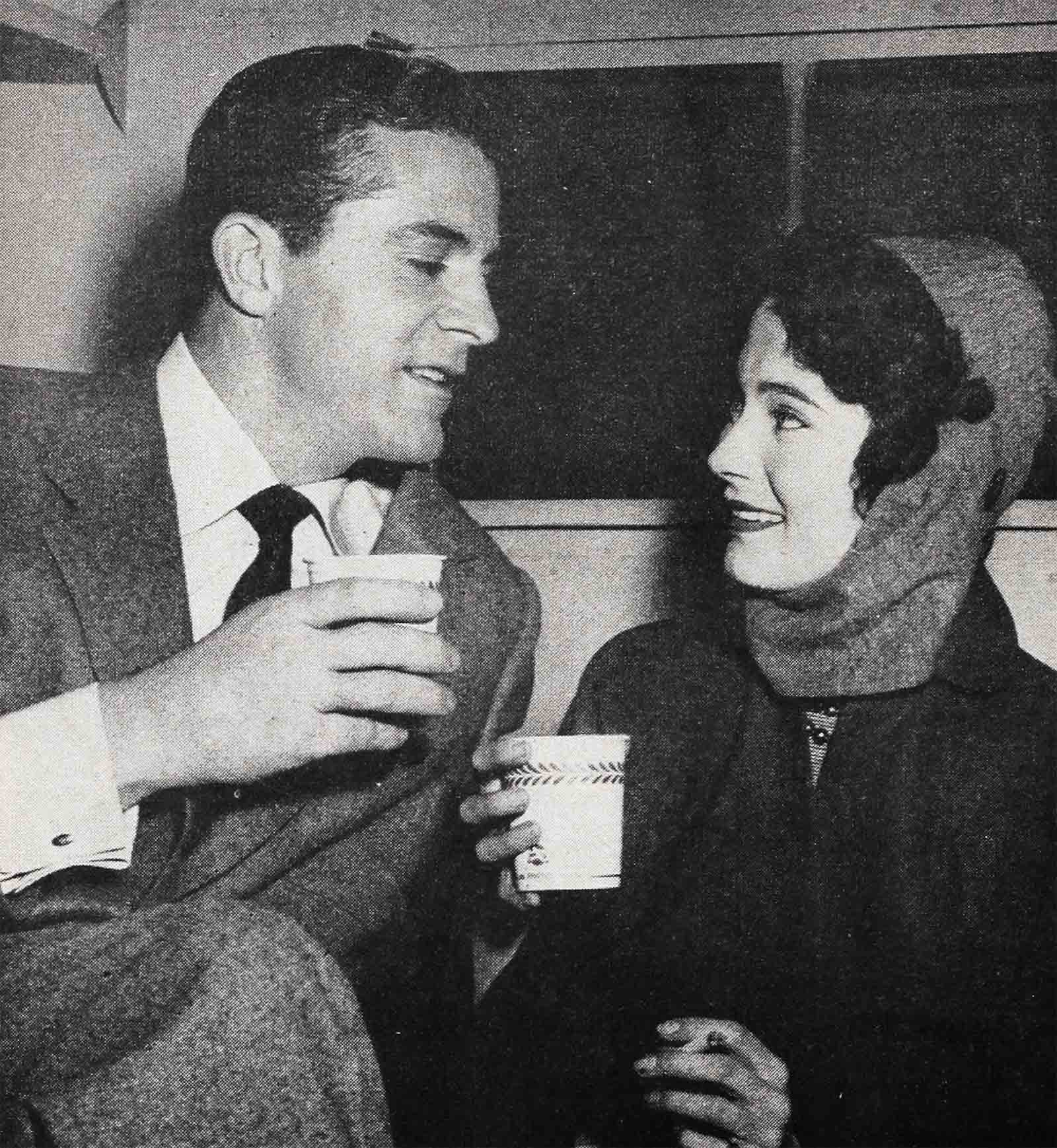
As a truculent American reporter, Dana Andrews is first assigned to the office of the New York Herald Tribune’sParis edition. His brashness doesn’t set too well with his new boss, a man of dignity and integrity. This role makes a refreshing switch for George Sanders, cast as a thoroughgoing good guy, a re-assuring type to have around in a dangerous situation. The antagonism between the two men sharpens when Dana falls in love with fellow staff member Marta Toren. Sent to Budapest to replace the Trib’s ailing correspondent in red-ruled Hungary, Dana believes that Sanders’ jealousy motivated the transfer.
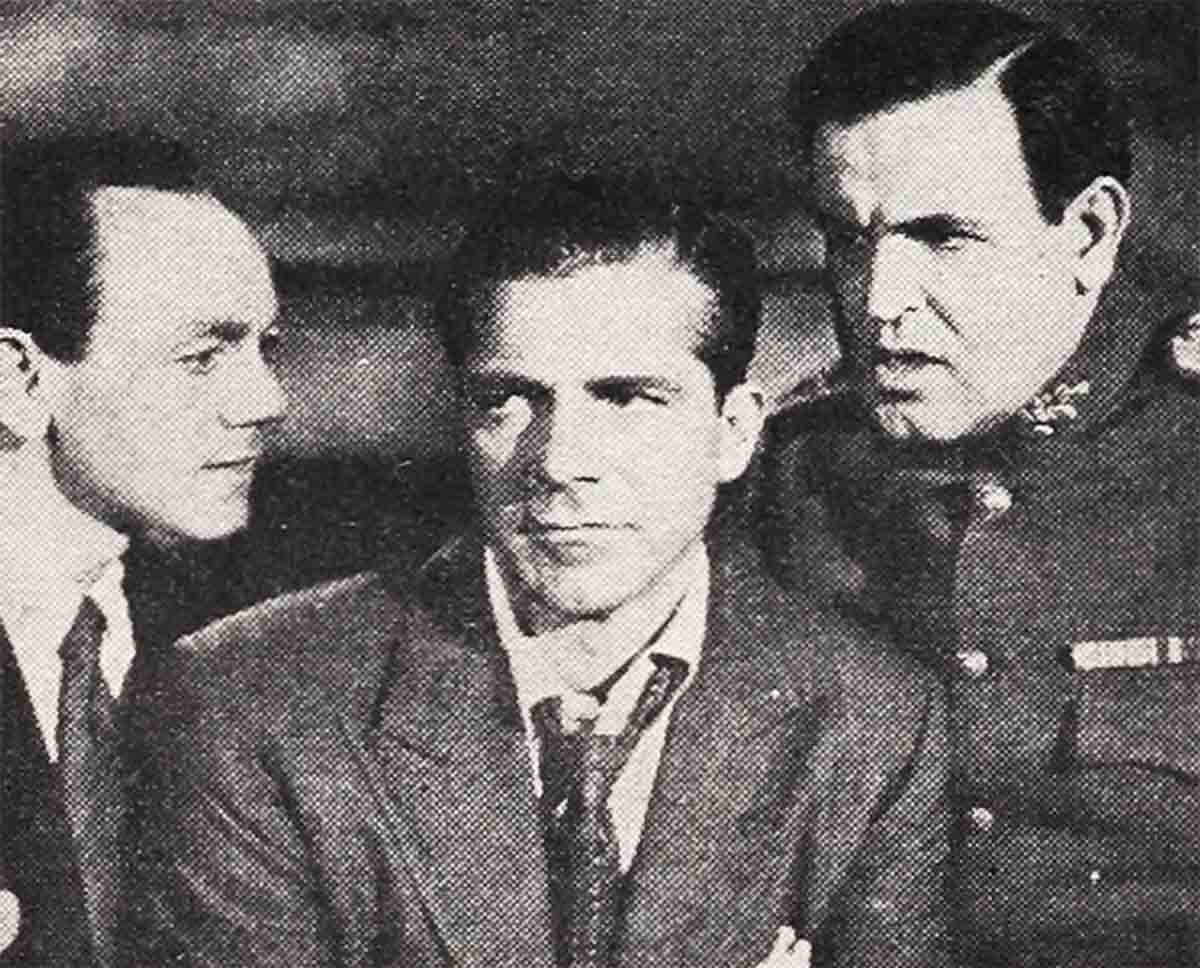
But there’s little time for romantic problems after Dana finds himself facing the brutal realities of life in a police state. Optimistically, the story assumes that Hungary’s prime minister is secretly planning to pull a Tito and cut loose from his Soviet masters, and Dana’s out—to get evidence of this plot. For once, a—movie about communism doesn’t waste—time with long speeches denouncing the reds. This one makes its point much more vigorously by just showing them—in action. As the prime minister, Herbert Berghof cuts a convincingly sinister figure. The scenes in which he tricks and forces the captured reporter into plead ing guilty as a spy give you a chilling insight into such phony confessions.
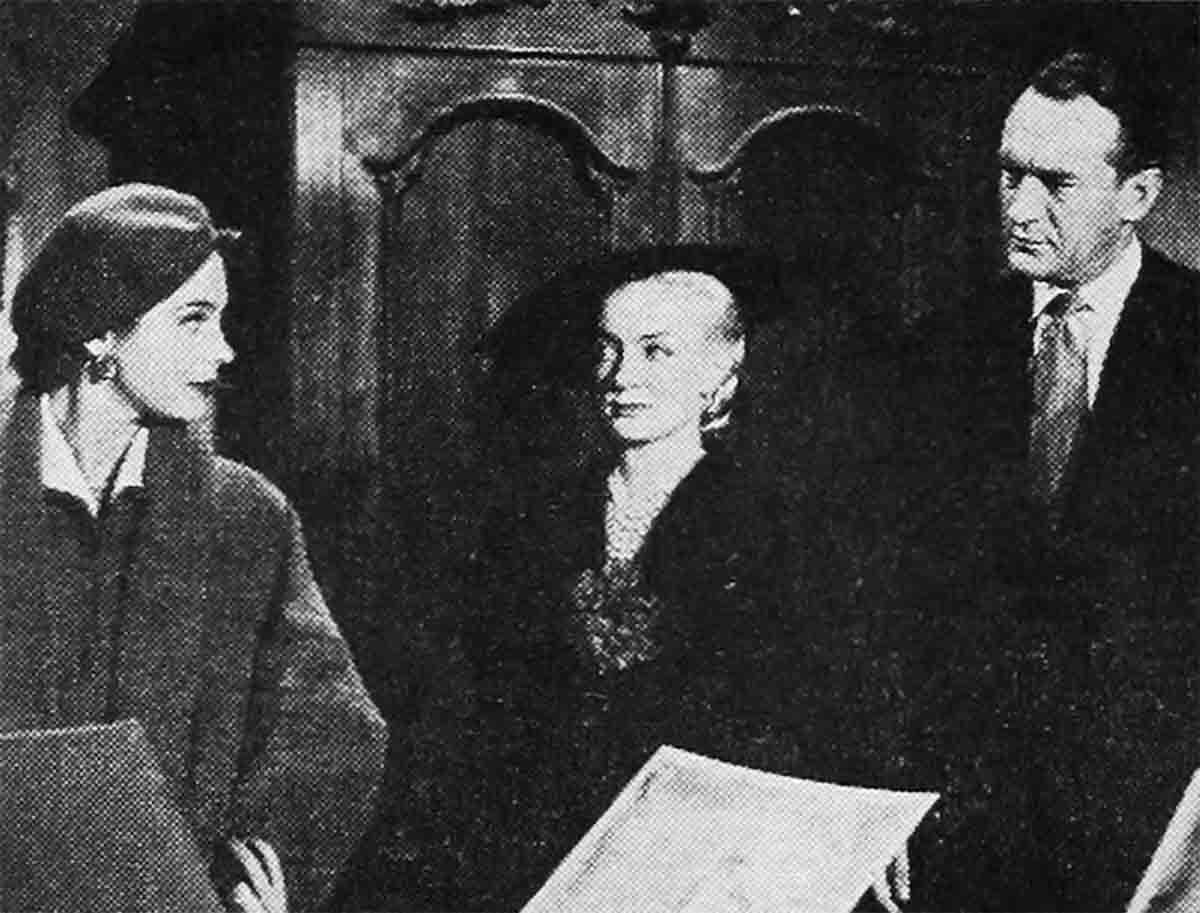
On the lighter side, there’s Audrey Totter’s brittle performance as the Trib’s fashion editor wryly in love with Sanders. And Marta’s sad-eyed beauty helps tom make the tender interludes a further relief from the general tension.
It is a quote. PHOTOPLAY MAGAZINE NOVEMBER 1952


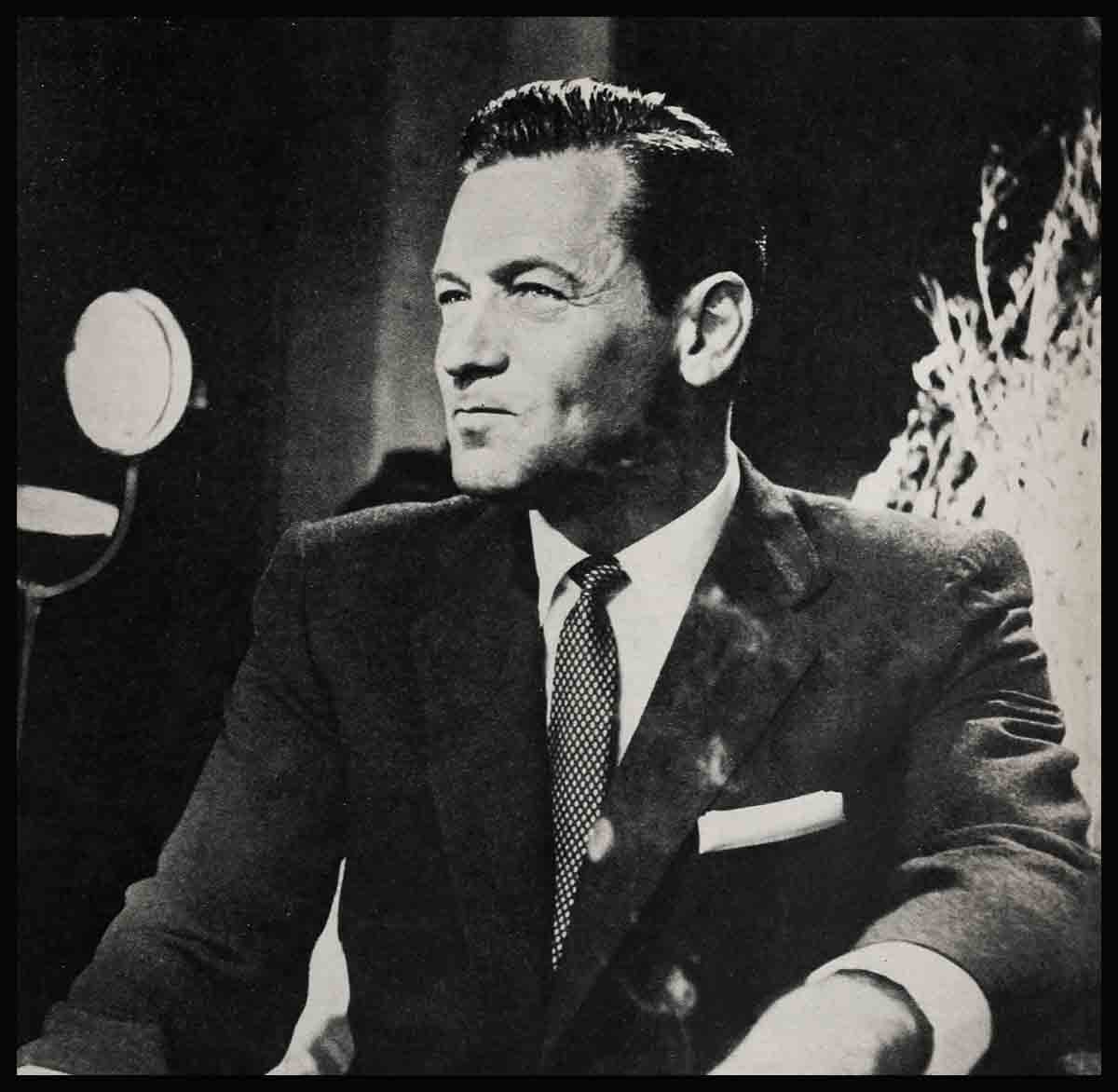

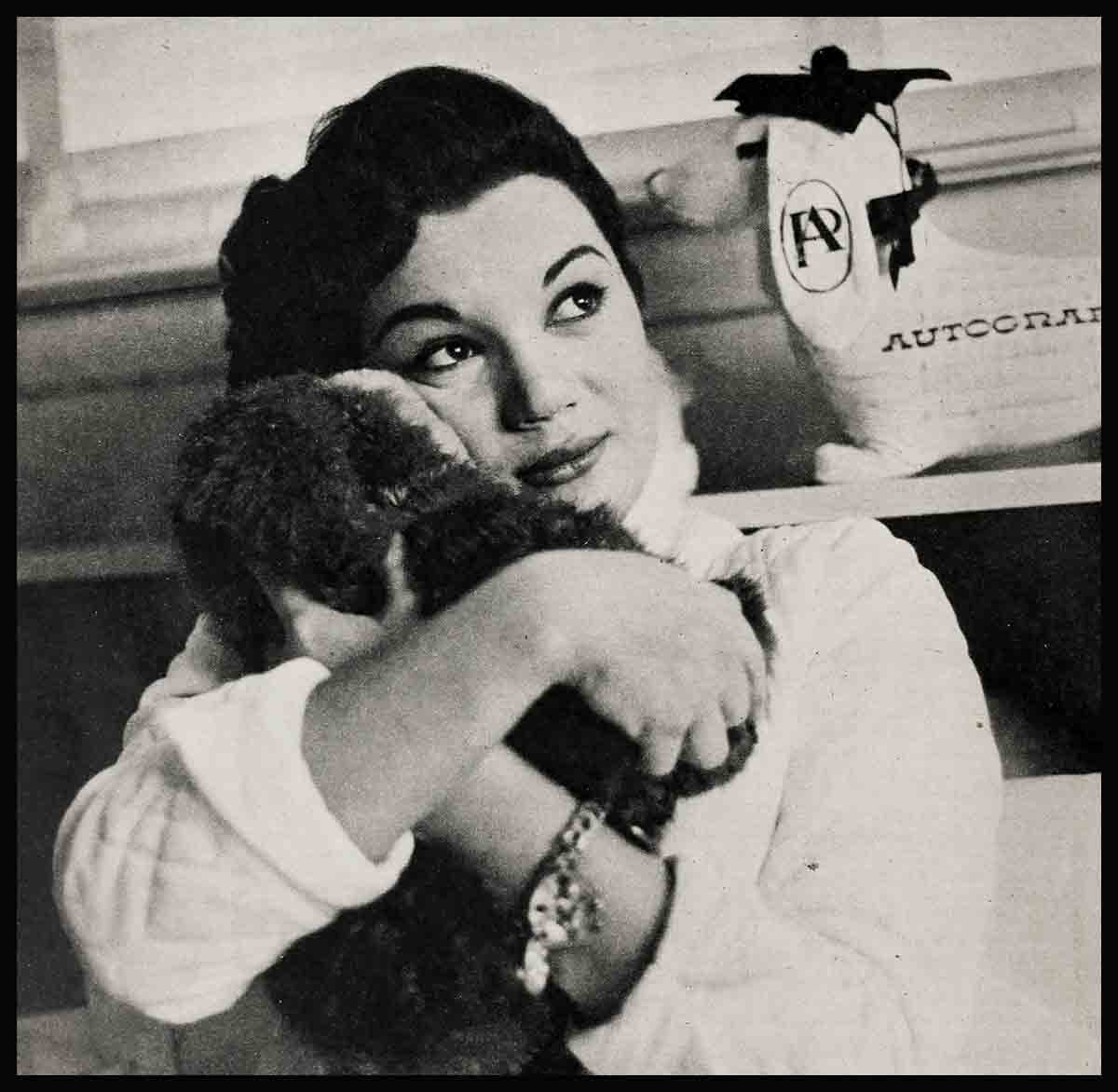
No Comments